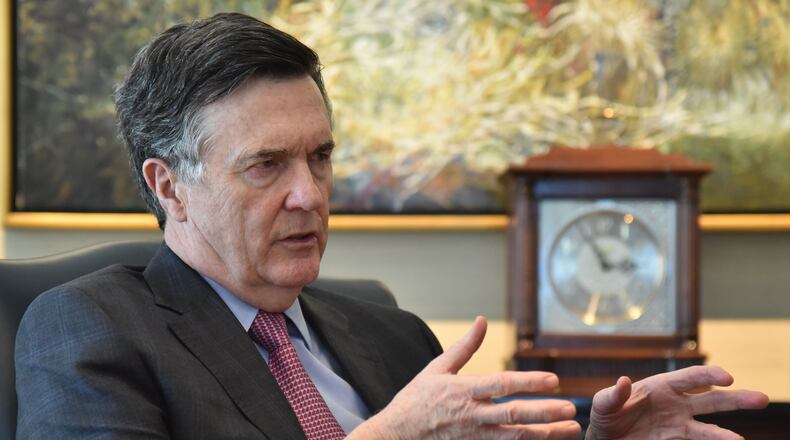The nation's central bank cannot do its job if its leadership is partisan, said Dennis Lockhart, former president of the Atlanta Federal Reserve Bank.
In an interview with The Atlanta Journal-Constitution, Lockhart said that politicizing the Fed would shake the confidence of markets, global investors and businesses that depend on "the integrity of the institution and the apolitical nature of the institution."
The Fed is charged with constraining inflation and nurturing economic growth, mainly by controlling short-term interest rates. But President Trump has frequently bashed Fed policies, raising concerns about whether it can maintain its reputation for being free from political influence.
The Fed’s board of governors currently has two vacancies. Trump said he is considering nominating Stephen Moore, a longtime conservative commentator, and former presidential candidate Herman Cain, a WSB Radio talk show host and businessman.
Both of the potential nominees have drawn intense criticism from opponents who argue they have no deep understanding of economic issues.
In making his comments, Lockhart, who spent a decade as Atlanta Fed chief, didn't mention the president or anyone else specifically, but he said that the board has typically been heavy with expertise.
Cain's chances dimmed this week, with at least four Republican senators apparently ready to vote against him.
“Mostly over the years, the governors who have been named have been experienced and credible economists and bankers,” Lockhart said. “That is true even though they are political appointees who have to be confirmed by the Senate.”
Trump has argued that the interest rate should be lowered to spur the economy. Critics worry that his appointees will push for that, whether or not it’s warranted.
Lowering rates again might be good for a president's re-election, but it would be economically unwise, said Desmond Lachman, economist and fellow at the American Enterprise Institute, a right-of-center think tank.
“What is the U.S. going to do if there’s a recession, if you cut interest rates now when you really don’t need to?” he said. “It puts us on the road to an overheated economy and you get inflation.”
Economists often second-guess the Fed – but critics generally knock the Fed’s priorities, not its politics.
Lockhart, now a professor at Georgia Tech's Sam Nunn School, said, "If the Fed lost its independence, that has implications for global capital markets, the interest rate, the value of the dollar."
About the Author
Keep Reading
The Latest
Featured



